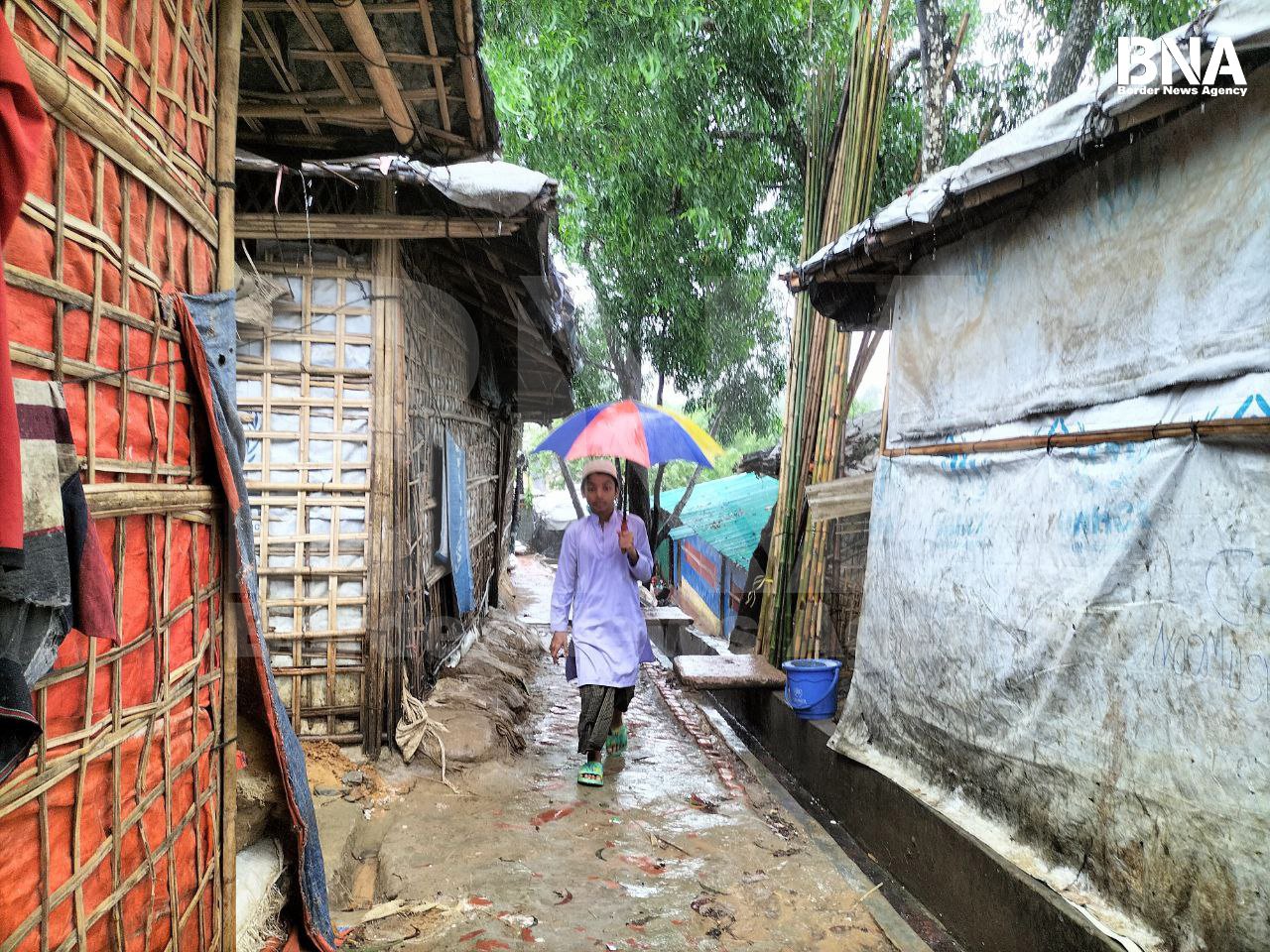Border News Agency
Cox’s Bazar, Bangladesh 28 May 2025
A day of relentless monsoon rain triggered a series of landslides across several Rohingya refugee camps in Cox’s Bazar, causing significant destruction and forcing thousands from their homes. The fragile shelters, perched on unstable hillsides, stood little chance against the downpour, which turned the soil into rivers of mud.
One of the affected residents, Hasina Begum, shared her harrowing experience. Living near the mountainside, Hasina had long feared the worst.
“Due to the heavy rainfall, I am very scared to stay home at night. I find it difficult to sleep because I worry that if it rains heavily, the mountain might collapse,” she said. “Living next to the mountain, I fear that I could be trapped if it falls.”
Her fears became a devastating reality.
“Unfortunately, my house has already collapsed due to the heavy rain. I am reaching out for help, and any assistance you could provide would be greatly appreciated,” Hasina added, her voice trembling. “Your support would make a significant difference in my life.”
Over 500 landslides were reported in just one day, with Camps 1 West, 8, 9, and 14 among the worst affected. Humanitarian agencies confirmed that at least 10 people have died, including women and children. More than 230 shelters have been completely destroyed, and over 700 others severely damaged, displacing over 1,300 people.
Emergency response teams from the UNHCR, IOM, and other aid agencies are working around the clock to provide shelter, food, and medical support. However, aid workers warn that as the monsoon season intensifies, the risk of further landslides looms large.
The lack of durable housing and erosion control infrastructure continues to place the nearly one million refugees in Cox’s Bazar at grave risk. Many of the protective fences and embankments have gone unrepaired for years due to funding shortages.
Hasina’s story is just one among thousands, a painful reminder of the vulnerability of life in the world’s largest refugee settlement. Her plea echoes the urgency of the crisis: “Please, help us before it’s too late.”
Authorities and humanitarian partners are calling on the international community to step up with immediate assistance to prevent further tragedy.






